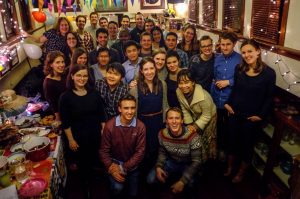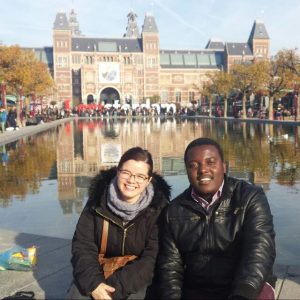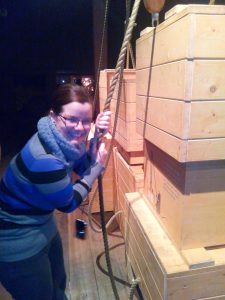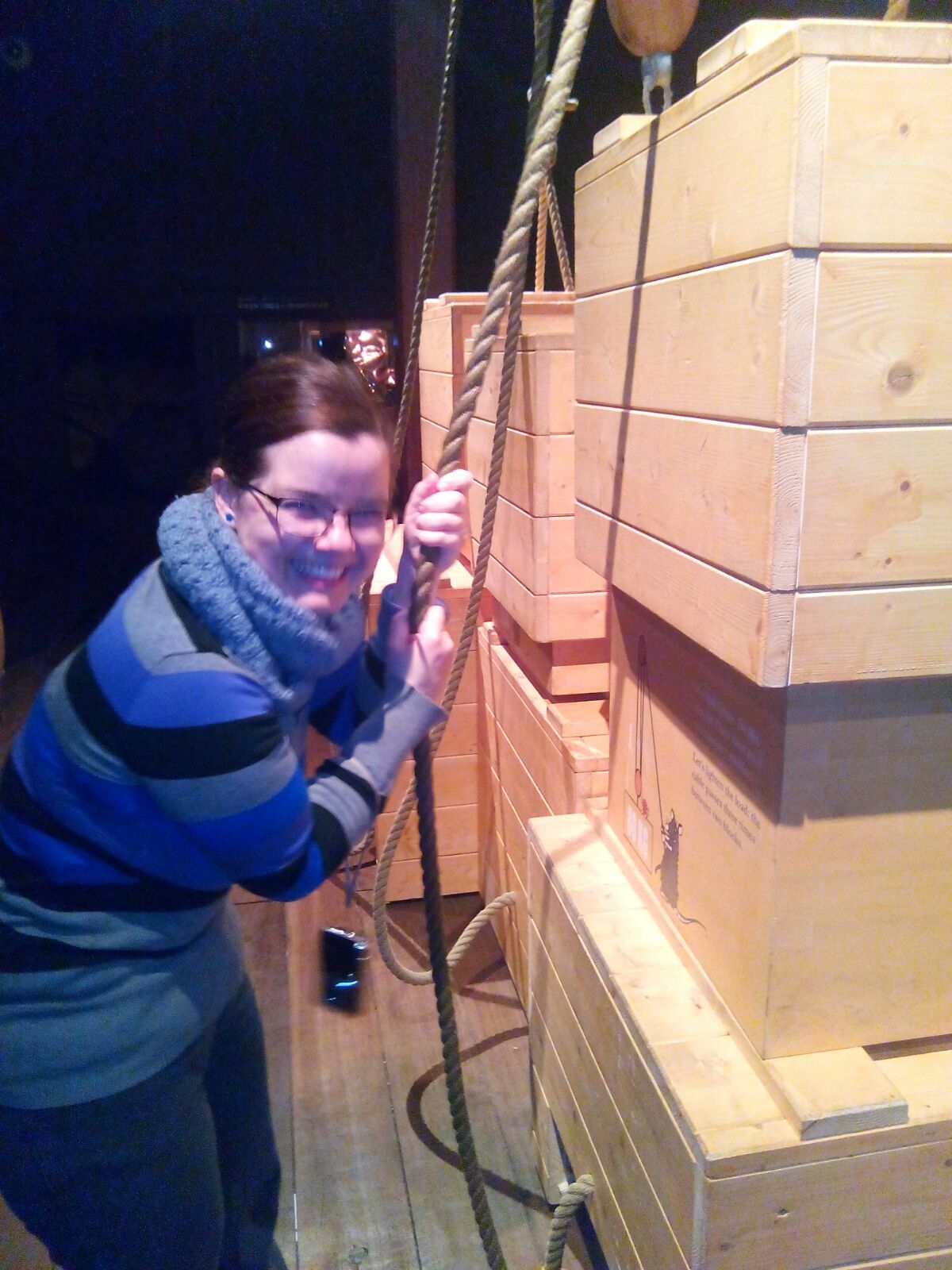Pre-departure:
I started my application to exchange to Amsterdam in February, after a workshop where I met my Dutch supervisor. The motivation for the exchange was 1) to share my research in the Dutch academic community and 2) to investigate possible future research opportunities between the Dutch colonial case and mainland Dutch case. The exchange was part of the bi-lateral agreement between Stellenbosch University and University of Amsterdam. Because of this agreement, I also received a monthly stipend which ended paying for my accommodation. The accommodation was organised through University of Amsterdam and they provided choices which I then choose from. The best option is usually to go somewhere what suits you best – whether that is shared amenities, or kitchen, or single room with your own amenities.
The organisation between the universities were smooth and I never felt like I did not know what to expect or do next. The first part was simply linking me to the international offices in Amsterdam and getting the registration going. The visa application for long-stays in the Netherlands is mainly co-ordinated by the university, while they inform you with plenty of time which documents you will require. This included bank statements, statements about the stipend, full passport details and insurance. Although this is a lot of paperwork, ensuring that it is in the correct order and fully supplied the first time saves time in the long run. I also added additional insurance once I arrived in the Netherlands. The visa application at the consulate was quick, but the appointment should be made well in advance to ensure you get a time slot and date that you want.
Besides the stipend I received from the university, I applied for additional funding through the Zuid-Afrika huis. The process ends early in the year, but if you can motivate enough they will grant an extension on the deadline and still allow you to apply. This will especially be the case if their funding won’t determine whether you come to the Netherlands or not. I think it is best to apply for as many as possible opportunities.
Finally, before departing, consider what is essential in packing. I tend to pack lightly when I go and buy whatever I need more there. This can include winter coats and toiletries. I’ve been lucky enough to never have lost a suitcase, but the ideal is to pack at least some clothes in your carry-on as well. Flights, and booking flights is somewhat difficult to decide on. The first option is simply to save and book well in advance to get the cheapest flight possible. The second (and option I chose the most) is to wait at least until your visa is approved or processed. Also try for as few connections as possible. Jet lag is bad enough without the additional time spent in airports. And before you catch you flight make sure you know how you plan to get from the airport to campus or accommodation where you pick up your key.
Experience at Host University:
Arriving in Amsterdam, I went straight to the university for What They Called an “Entry appointment”. At this appointment, I received my student card, information about the orientation, the campus, transport and also my residence permit. If you don’t receive your residency permit there, you have to collect it at city hall. From the university, I collected my keys and went to unpack. The best way I found to get over jet lag is to stay as busy as possible and the next morning I already had a meeting with my Dutch supervisor. He also took me around the building where I was seated and to the office space.
The office space I had, I shared with other PhD Students. This enabled me to make as many Dutch connections as I could. We also shared lunch every day and this was some of the times where I learned the most about Dutch culture. During these lunches, we would either talk research or what there is to do in the city, accommodation and where to visit other cities.
I also spent Mondays in Utrecht where I attended either their social history seminar or their financial history seminars. This further extended the people I met and with whom I shared my research. (There was even two visits to Wageningen University with one of the office colleagues). The exchange also enabled me to share my research at the annual African Economic History Network Workshop. The feedback on the PhD received from these workshops and seminars have proven invaluable to my research.
To also gain as much from the experience in the Netherlands as possible, I would suggest getting involved in at least one group, for me that was a religious group. This made it possible for me to make friends outside of the office and instead of just going to work and going home, it kept me busy for at least two nights a week. I’ve also learned that these friendships tend to last much longer than the exchange – and recently visited on of these friends in the US.

I was also fortunate enough to have two South African friends attend the workshop and visit for a while after. It is with these friends that I then travelled to Belgium and other parts of the Netherlands. Going on exchange, to at least see one part other than your host city is vital to the experience.

But during an exchange you should also spend enough time soaking up the richness of where you get to live for a while. Go to the museums (photo 3 – me at the Scheepsvaartmuseum), galleries and markets which will teach you nuances of the city you live in which might escape you otherwise. Also, find as many ways as possible to save money – get a discount card at the grocery store, and for public transport or on trains. And ask friends who may have lived there for longer to share in these experiences.

Arrival:
Returning to South Africa, I suggest you leave enough time to pack, clean your apartment and take your keys back. One possibility is to spend your last night or two at a friends’ place so you have time to do this. I spent the last two nights at friends and spent my last day in the city, returning keys, permits and deregistering accommodation. This left plenty of time to also ensure you have everything you want to bring back home and say goodbye to friends. Your friends might also be willing to help with getting to the airport and carrying bags to the train/bus/airport.
With my arrival back in South Africa, I was fortunate enough to have three weeks holiday (Christmas and New Year) and did not immediately have to reintegrate into a busy work schedule. If at all possible, try to have this and readjust. It certainly helped me. When I then returned to Stellenbosch, everyone else was returning as well and it made the adjustment easier.
It will take a very long time to completely readjust to South Africa, but it helps to share those experiences and remember that an exchange will completely change your life. Don’t expect to react and feel the same way you did before your exchange.
P.S. remember to do these things on a checklist, otherwise you will forget.

